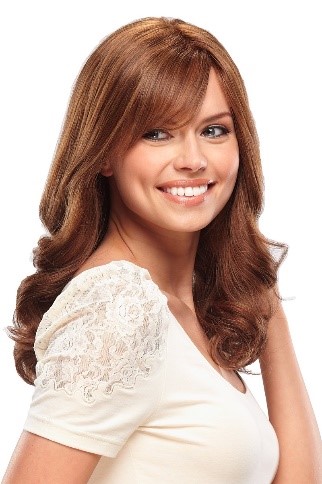The more that I work with clients, the more I realize the need to pay attention to how your hair responds to the hair products that you use. Remember to change up your shampoo and conditioner every six months or so. Your hair has memory, and it can only take so much of the same product before it starts to go limp, no longer giving you the results that it used to in the beginning. If you need some great products that will moisturize your hair and are great for all hair textures and types, I recommend the Basic Hair Care line. I love this product line because all of the products are interchangeable, and you can mix the products within the line to address your hair needs. For instance, if you have color-treated hair, you can use Basic Boost Sulfate Free Shampoo to preserve the longevity of your hair color and Basic Tea Tree Deep Conditioner to help relieve your dry, flaky, or itchy scalp problems. Now that the fall and winter seasons are here, I recommend the following Basic Hair Care Products:
- Basic Conditioning Shampoo – a gentle moisturizing cleanser formulated with coconut oil to stimulate hair growth. The formula promotes scalp health; moisturizes dry hair; adds shine, luster, and softness; and prevents breakage and split ends.
- Boost Rapid Restoration Conditioner – stabilizes, fortifies, and rebuilds damaged hair. It can be used on all hair types, including curly hair.
- Basic Leave-in Conditioner – contains essential vitamins and minerals for conditioning.
- Basic Mega Moisture Leave-in Conditioner – great for high density, extremely dry hair or color-treated hair.
- Basic Shine Serum – leaves the hair silky without tons of shine.
For colored treated hair, I cannot stress enough the need to condition and get hot oil treatments regularly. After using Olaplex a few times, I highly recommend it as well. It can be used during your thermal and chemical salon services, and it helps the hair bonds not break down completely, which is important in preventing depletion of your hair’s elasticity.
For kinky hair textures, you can help protect your hair dryness and retain its moisture by sleeping on a satin/silk pillow case, bonnet, or scarf.
For hair textures that tangle, get dry, and damage easily, reduce the usage of hot tools such as hair dryers, curling irons, etc. as much as possible. Also, consider heatless protective styles. My definition of protective hair styles are hairstyles that require little to no heat or do not require daily styling, which minimizes you putting your hands in your hair, thus giving you maximum benefit for hair growth and retention.
To maintain your hair’s curls, I also recommend using hair rollers, satin or hard rollers, which will help you to maintain your curls and keep the body/volume in your hair without the damage from heat. You can even do it the old-fashioned way and just pin your curls up with a bobby pin or hair clip. Then, tie your hair down before going to bed.
Depending on your hair texture and type, and if your hair is normal (moisturized, no split ends, no heat damage and healthy), minimize washing your hair to every two to three weeks. I know that for teenagers, determining hair texture and type can be extremely difficult and the why I created an ebook – Who Needs Hair Anyway? Your Guide to Maintaining Your Hair While in College specifically with them in mind.
From my experience with clients who suffer from dry, itchy, and flaky scalp, I have found that washing your hair more frequently (as often as once a week with a medicated shampoo and conditioner) followed up with a leave in conditioner and essential oils mixed with hair oil helps control the flakes. Once you get the flakes under control, you may wash your hair every two weeks. If your scalp can stand it (you are not tender headed), you should use a mixed-bristle brush, such as a Mason Pearson or Boar Bristle brush. Boar bristly brushes help to remove debris from the scalp and stimulate blood flow in the scalp to release more oils and promote hair growth. As always, if the flakiness is really excessive (dermatitis/eczema), discuss the condition with your dermatologist. Your hair care professional and dermatologist should work in partnership to help you combat your scalp and hair problems. There is no permanent solution that will completely eliminate your flaky scalp condition, but you can minimize the problem by getting the flakes under control.
If you are suffering from hair loss and not sure on where to begin getting help, opt-in to my mailing list to get your complimentary copy of my Hair Loss Recovery Guide.
Drink plenty of water, watch your diet, exercise, and know the side effects of the medications you are taking. These factors have a huge effect on your hair and scalp. Medical studies identify five behavioral issues that cause 80% of health problems: too much eating, drinking, smoking, stress and not enough exercise. Alan Deutschman Change or Die (New York: Regan, 2007), 3.
Precious is dedicated to serving God and humanity. Precious is the Stylist, Author, Speaker, and Beauty & Confidence Coach. She is passionate about retaining the hair that you have and empowering others to be bolder and more confident. She volunteers for the Look Good Feel Better program offered through the American Cancer Society. Precious is also the President and Senior Technician of H3 Hair Health Happiness. When she is not working or volunteering, she reads and spends time with her husband, kids, and family pets (a dog, a gerbil and two guinea pigs).
Like and follow H3 Hair Health Happiness on Facebook and Instagram @ Hairhealthhappiness
Website: www.hairhealthhappiness.com
To work with her or book her for speaking engagements, contact her at P.O. Box 1154 Maryland Heights, MO 63043
Business Phone: 314-275-0663
Fax: 314- 269-0155
Email: hairhealthhappiness@gmail.com





















